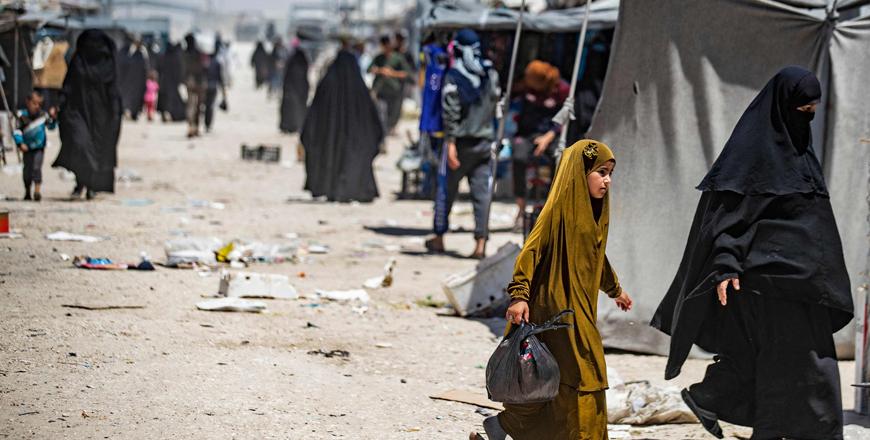- International News
- Sun-2021-06-27 | 02:41 pm

Nayrouz News Agency :
The UN's special envoy for Syria, Geir Pedersen, on Friday added his voice to calls to keep open the only border crossing through which humanitarian aid reaches the insurgent Idlib region, a move opposed by Moscow.
Aside from being the sole point through which aid can reach some three million people, the fate of the crossing is seen as a test of the new Russia-US relationship under the leadership of President Joe Biden.
It is due to close on July 10, and will require a UN vote to stay open.
But Russia has made clear its opposition to a move which it says threatens Syrian sovereignty, may use its veto power on the UN Security Council to block it.
"Civilians across the country desperately need life-saving assistance and help building resilience. It is absolutely vital to maintain and expand access, including cross-border and cross-line operations," Pedersen told the Security Council.
"A large-scale cross-border response is essential for an additional 12 months to save lives," he said.
The authorisation has been in force since 2014.
But last year, Moscow, using its veto repeatedly, implemented a drastic reduction on the number of crossing points, from four to the one which remains, at Bab Al Hawa on the Turkish border.
Ireland and Norway, non-permanent members of the Security Council, presented a draft resolution on Friday that seeks to keep Bab Al Hawa open for one year and to reopen a second crossing point, Al Yarubiyah, which Al lows supplies to reach Syria’s northeast from Iraq.
The United States, France and Britain, all permanent members of the council, had wanted the reopening also of the Bab Al Salam crossing point in the northwest on the Turkish border, which was among those closed last year, diplomats have said.
Biden discussed the subject with Russian President Vladimir Putin at a recent summit in Geneva, and US media has suggested that keeping the crossings open could signal a shift in the relationship between Washington and Moscow, which has turned frosty since Biden came to power.
In a statement on Friday, Diana Semaan of Amnesty International stressed that stopping cross-border aid would have "catastrophic humanitarian consequences”.
"We call on the Security Council to reauthorise humanitarian access through Bab Al Hawa, and to reopen the crossings at Bab Al Salam and Al Yarubiyah,” she added.
Louis Charbonneau, the UN director at Human Rights Watch, echoed her call for the reopening of the closed border crossings.
"Anything less than full reauthorisation risks condemning many of the millions of Syrians in the north to misery or death, whether through malnutrition or COVID-19,” Charbonneau said in a statement.













